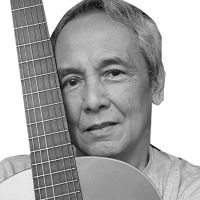Does social media make us more evolved?

When something monumentally tragic happens like the encounter between government troops and rebels in Maguindanao, people are naturally riveted to the news. It doesn’t take too long before everyone begins to express his/her opinions on social media even while they are based on very scanty information available. I guess it is a natural reaction to trauma. We are expressing outselves as we are processing everything in real time, and it may not always be coherent.
You can see this happening all over social media lately. Many people are shooting from the hip. They are flying off the handle emotionally. We are flooded with opinions, condemnations, taunts, memes, insults, hashtags either in support or against P-Noy or some government officials, etc.
During these times, Facebook can become a very noisy, angry place. You will read all shades of opinions coming from the extreme left to the farthest right, from serious thinkers to kibitzers, from the educated to the ignorant, but mostly from regular ordinary people who are just plain angry, sad or confused.
So many seem to be standing on their soapboxes and ranting away. And why shouldn’t they? One of the easiest things to do is rant and, chances are, someone out there will read it and agree, and the “ranter” gets to feel some sort of validation. Personally I like those who can rant but do so with some insight. The others I just ignore.
I do recall Andy Warhol once saying that in the future, everyone will be famous for 15 minutes. It seems that in today’s world, that quarter of an hour, brief as it is, may have become even shorter — as short as it takes too read a tweet or a post, or a blog entry. There are just too many people talking.
While opinions may be many and varied, I mostly search for those gems that are written with sobriety and are well-thought-out, especially during times like these. They come from deep knowledge and experience, with factual backing that rings true with authenticity. They are worth sharing, and I often repost them.
Opposite these are the hysterical ones who feed on our anger and biases using insults and twisted logic. As an example, any article that calls the President “Abnoy” is definitely not worth the time of day. And its writer automatically merits being blocked from my sites. I also try to not take seriously opinions that are based on mere speculations, rumors and the like.
The very nature of social media is democratic. Everyone can have access to any site. It also means that both the intelligent and the not-so-intelligent can use these platforms to shout out their thoughts. Sadly, truth, wisdom, wit and insight are not equally distributed to everyone. These are accessible only to those who devote time, discipline, effort and patience in understanding and analyzing the nuances and complexities of given situations.
It is equally sad that the lazy people who do not spend the time and effort to read well-analyzed and researched pieces outnumber the people who wish to understand more.
Having said that, I still look at all this democratic access for everyone as largely positive. Sure, it can be annoying and even downright worrisome to read how other people can hold certain opinions or be so ignorant about a lot of issues. Yes, even ISIS, terrorists and hate groups are on FB and Twitter. But I still think that the more venues people have for expressing themselves, the better it may be in the end for democracy. Why? Because I like to believe that the best ideas eventually win out.
The discussion of issues is often dynamic and on a national level. Sometimes it is even on an international scale. People all over the world can comment on what’s going on anywhere in the globe. People become more aware of how other people live, what their values are and how their societies confront and solve problems. Things are more transparent. This alone can cause expectations to rise among peoples who are not treated right by their governments and their outdated value systems.
And social media can alter behavior, too. Before Pope Francis came, regular and social media did a wonderful job of disseminating information about the list of activities and the security protocols people had to follow. People were prepared. They complied with the rules. There was order even if you could feel the exuberance, excitement and the devotion everywhere.
But reading social media the past week has been a gloomy or an angry experience for many. There are too many people that you wish did not have access to Facebook. There is so much blaming based on “facts” that are largely hearsay. I am hoping that all this negativity will disappear once the facts emerge.
The Internet can be a cauldron at times. It can really generate a lot of heat. But sometimes it also brings some light. I have seen people who love to rant respond to reason and change their minds after reading responsible posts. It has happened to me a few times where I felt I was called out for what I posted and presented with a contrary view which I ended up adopting. It can be humbling but I see it as part of getting to be a better adult.
Here’s hoping these teachable moments also happen more and more and to everyone.
Maybe social media is something man subconsciously created to speed up evolution. I don’t really know. But it’s nice to think it is true.















